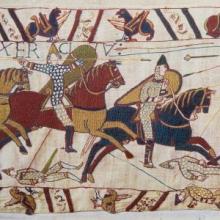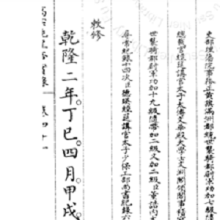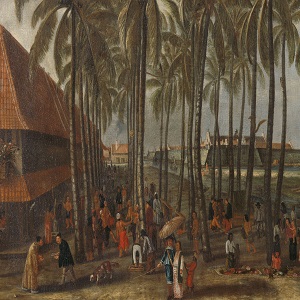Early Modern (1450 CE - 1800 CE)

Quilted bedcover of Elisabeth Chapman
This quilted bed cover was likely made for the marriage of John and Elisabeth Chapman on September 19, 1829.

The Love Letter by Jan Vermeer
Painted in the last phase of his career, Dutch artist Jan Vermeer’s The Love Letter is a work of oil on canvas that depict

Laws of Manu
The Manu-smriti, or Laws of Manu, are of the most authoritative codes of Hinduism in India, dating back to approximately 1

Kasai Velvet, Democratic Republic of the Congo
Despite its name, Kasai velvet, or velours du kasai, is not actually a velvet.

Analyzing Primary Sources on Women in World History
Traditionally, historical writing focused on elites and often rendered women invisible unless they were queens or empresses.

Veritable Records of the Chosŏn Dynasty
In the twenty-first century, we are used to post-Westphalian norms of inter-state equality and noninterference. These norms, however, did not apply to interstate relations between the Qing empire and its tributary states.

Page from the Pentaglot Manchu Glossary
The Qing empire was founded by the Manchus, and they used a language and a script that were distinct from those used in China Proper.

Page from Qing Veritable Records
The Qing court used a twelve-month lunar calendar based on the sexagenary cycle, distinct from the solar Gregorian calendar used by most of the world today. This page from the Qing Veritable Records (Da Qing shilu) provides a good example.

Short Teaching Module: Translation and a World History of the Qing Empire
In 1953, L. P. Hartley famously wrote: “The past is a foreign country: they do things differently there." His observation is particularly relevant for world historians, who have to engage in translation projects to bridge the distance between our world and the worlds of our historical actors.

The Batavia Castle
Seventeenth-century market in the city Batavia (nowadays Jakarta, Indonesia), the central node of Dutch imperial activities in the Indian Ocean region. The Batavia Castle is visible in the background and to its right the Council of Justice with the gallows and whipping post in front of it.